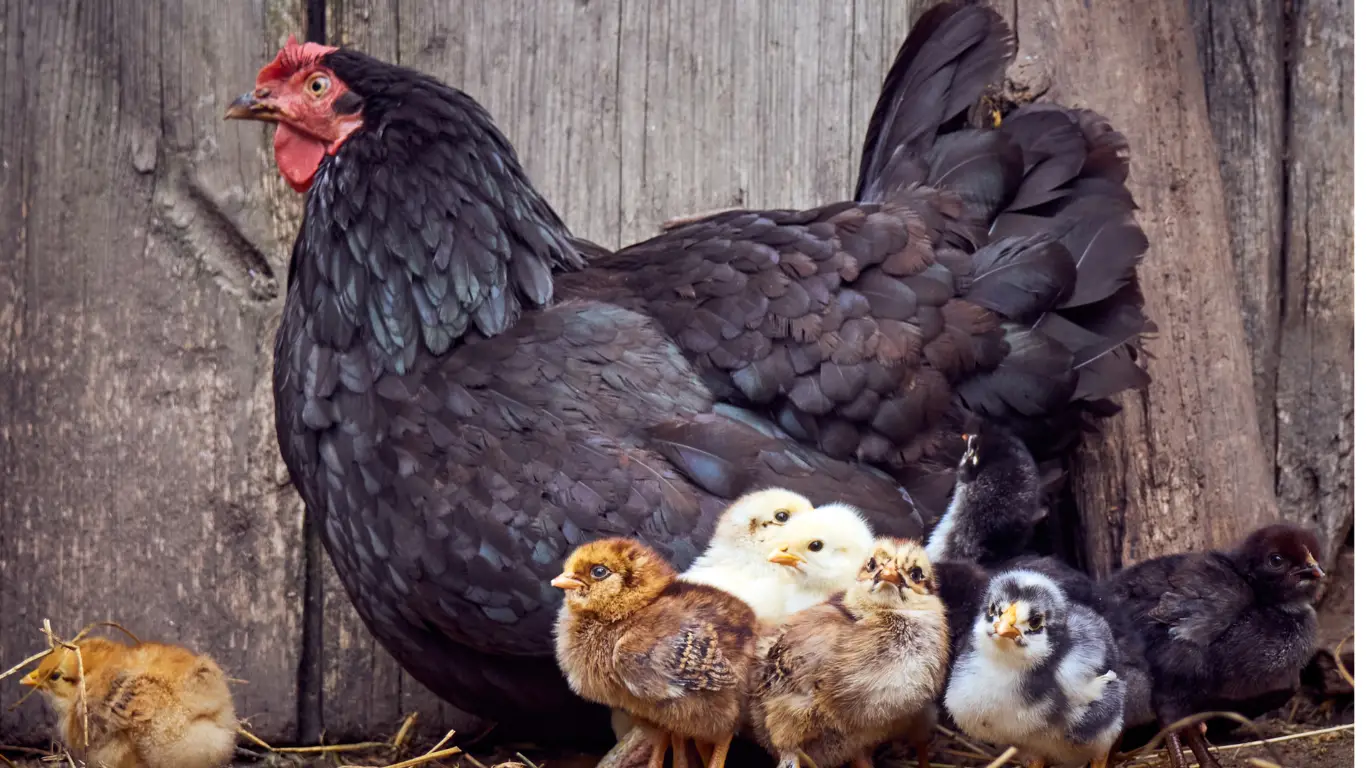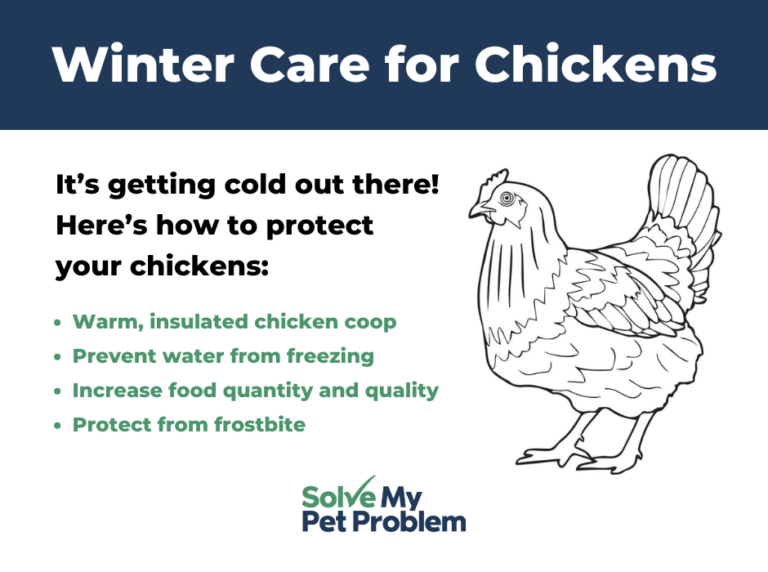Share via:
Backyard Chickens in the Winter
- Summary
- Deep Dive
- FAQs

-
-
-
Summary – Backyard Chickens in the Winter
To take care of backyard chickens in the winter, start with a warm, insulated, and well-ventilated coop free of drafts. Prevent water from freezing with heated waterers or frequent checks, and increase their feed slightly while offering energy-rich treats and fresh greens. Protect chickens from frostbite by applying petroleum jelly to combs and wattles and providing dry, well-bedded areas. Keep the coop clean by replacing wet bedding regularly and maintaining airflow to prevent harmful gases. With these steps, your chickens can stay comfortable and thrive throughout the winter.
Keep reading for a deeper dive and FAQs.
Protecting Backyard Chickens in the Winter
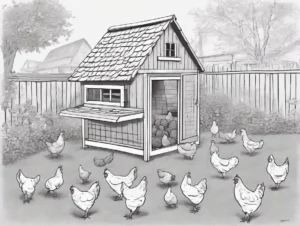
As the cold weather rolls in, many flock owners wonder how to keep backyard chickens in the winter and ensure they remain comfortable and safe through the cold.
Chickens are hardy animals, but just like any pet, they need some extra care during the colder season. Proper winter care for your chickens helps them stay healthy, warm, and continue to lay eggs.
Here are some important tips to ensure your chickens are well taken care of when the temperature drops.
1. Provide Warm, Dry Shelter, Especially in the Winter
Chickens need a safe, dry, and draft-free place to stay. Knowing how to build a chicken coop is essential to protect them from the cold and the wind. The coop should be insulated to trap warmth but still allow for chicken coop ventilation to prevent moisture buildup, which can cause frostbite.
Insulating the Coop
One way to insulate the coop is by adding straw bales or foam board insulation to the walls. Avoid using fiberglass insulation because it can be harmful to chickens if they peck at it. If your coop is wooden, it may already have some natural insulation, but extra layers can help keep the cold out.
Make sure the coop is large enough for your chickens to move around comfortably but not so large that it becomes hard to heat. Chickens generate body heat, so a smaller space will retain more warmth.
If you have a small flock, you can even use a heat lamp or an electric poultry heater to add extra warmth. However, be cautious with electrical appliances around chickens, as they can be a fire hazard. Always supervise any electrical heating source and make sure the wiring is safe.
Prevent Drafts
While insulation helps keep the warmth in, it’s important to ensure that there is no direct draft where your chickens sleep. Drafts can cause chickens to get chilled, which can lead to sickness or frostbite on their combs and wattles. Check for any cracks or gaps in the coop and seal them with weatherstripping or caulking. However, don’t seal the coop completely. Chickens need ventilation to avoid excess moisture, which can cause respiratory problems.
2. Keep the Water from Freezing
Water is one of the most important things to monitor if you have backyard chickens in the winter. When the temperature drops, it can quickly freeze their water. Frozen water can leave your chickens thirsty and dehydrated, which could make them sick.
Heated Waterer
To prevent the water from freezing, consider investing in a heated waterer. These devices have a built-in heating element that keeps the water at a safe temperature, even in freezing conditions. They come in various sizes and can be plugged into an outdoor outlet. If you don’t want to buy a heated waterer, you can also use a simple plastic or metal waterer and place a heat lamp or heat tape near it. Be sure to check the water several times a day to ensure it stays thawed.
Multiple Water Stations
If you have a large flock, it’s a good idea to set up more than one waterer. Chickens drink more water in the winter due to the dry air, so they may appreciate having more than one option. Just make sure all water stations are checked regularly to prevent freezing.
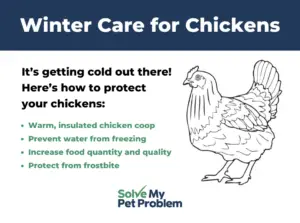
-
-
-
3. Provide Extra Food and Nutrition

In the winter, chickens require more food to help them maintain their body heat and stay active. Chickens use energy to keep warm, especially during very cold spells, so you may need to adjust their diet to ensure they are getting enough nutrients.
High-Quality Chicken Feed
Offer your chickens a high-quality, balanced layer feed that meets their nutritional needs. This is especially important for chickens in winter because they eat more to help them stay warm. Avoid giving them table scraps with too much salt or sugar, as these can harm their health.
Treats for Extra Energy
You can also offer your chickens healthy treats like scratch grains, sunflower seeds, or oats to help them gain some extra calories. Scratch grains are a great choice because they take longer to eat, which helps keep chickens busy. Just make sure to limit treats to no more than 10% of their diet to avoid upsetting their nutritional balance.
Provide Fresh Greens
Even in winter, chickens need a variety of nutrients, including fresh greens. If you have access to leafy greens like kale, spinach, or lettuce, give them to your chickens for a boost of vitamins. You can even grow winter-friendly plants like spinach in pots indoors to provide fresh greens during the colder months.
4. Monitor for Frostbite
Frostbite is a serious condition that can affect chickens during the winter months, especially on their combs, wattles, and feet. It occurs when the temperature drops too low and blood flow to these areas is restricted, leading to tissue damage.
Protecting Comb and Wattles
The comb and wattles are particularly vulnerable to frostbite. If your chickens have large combs, consider putting petroleum jelly or a similar product on their combs to protect them from the cold. You can also consider bringing chickens with very large combs indoors at night if the weather is exceptionally cold.
Protecting Feet
Chickens are also prone to frostbite on their feet, especially if they’re standing on frozen surfaces for long periods. Make sure your chickens have a dry, well-bedded area to walk on in the coop. Avoid letting them walk on frozen ground for long stretches of time. If the snow or ice is particularly harsh, you may want to keep your chickens in their coop more often and limit their outdoor time.
5. Maintain a Clean Coop
Keeping the coop clean is important in all seasons, but it’s especially important in the winter when chickens are spending more time indoors. Wet bedding can create a breeding ground for bacteria and mold, which can cause respiratory problems.
Clean Bedding Regularly
Check the bedding in the coop regularly and replace it with fresh straw or wood shavings. You may want to add extra bedding to help keep the chickens warm. A thick layer of bedding will help absorb moisture and provide insulation.
Keep Ventilation in Mind
While you want to keep your chickens warm, you also need to make sure there’s enough airflow to prevent harmful gases like ammonia from building up in the coop. A well-ventilated coop can help prevent respiratory infections.
Backyard Chickens in the Winter Conclusion
Keeping backyard chickens in the winter doesn’t have to be difficult, but it does require some extra attention and effort. By providing a warm, dry shelter, keeping water thawed, offering extra food and treats, and protecting your chickens from frostbite, you can ensure your flock stays healthy and happy all winter long. With these simple steps, your chickens will not only survive the winter—they will thrive!

-
-
-
Frequently Asked Questions
Backyard Chickens in the Winter FAQs
How can I ensure my chickens stay warm and healthy in the winter?
- Providing appropriate shelter and taking steps to prevent frostbite are essential for your chickens’ well-being during winter.
- Shelter: Chickens need a well-insulated, dry, and draft-free coop. Insulation helps trap the warmth generated by the chickens, especially important if you have a small flock. You can use materials like straw bales or foam board insulation for this purpose. Ensure proper ventilation to prevent moisture buildup, which can lead to health issues. You can achieve this by sealing cracks to prevent drafts while ensuring there’s still some airflow. A smaller coop is generally easier to keep warm. For added warmth, particularly for small flocks, consider using a heat lamp or electric poultry heater, but always supervise these to prevent fire hazards.
- Frostbite Prevention: Chickens are susceptible to frostbite on their combs, wattles, and feet. You can protect their combs and wattles by applying petroleum jelly. For chickens with large combs, bringing them indoors during extremely cold nights might be necessary. To protect their feet, ensure they have a dry, well-bedded area in the coop and avoid prolonged exposure to frozen surfaces. Limiting outdoor time during harsh weather can also help.
How can I keep my chickens hydrated during the winter?
Access to unfrozen water is crucial for chickens’ health, even in winter.
- Heated Waterer: Using a heated waterer is the most reliable way to ensure your chickens have access to liquid water, as it prevents freezing even in sub-zero temperatures. These are available in various sizes and plug into outdoor outlets.
- Alternative Methods: If you don’t have a heated waterer, you can use a regular waterer and place a heat lamp or heat tape nearby to prevent freezing.
- Regular Checks and Multiple Water Stations: Regardless of your method, check the waterers multiple times daily to ensure the water is thawed. For larger flocks, set up multiple water stations to ensure all chickens have adequate access to water. They tend to drink more in winter due to dry air.
Do I need to adjust the diet of my chickens in the winter?
Yes, chickens require dietary adjustments in the winter to maintain their health and body heat.
- Increased Food Intake: Chickens need more food in the winter to fuel their energy needs for staying warm and active. Increase the amount of their regular feed to compensate for this increased energy expenditure.
- High-Quality Feed: Use a high-quality, balanced layer feed specifically formulated for chickens to ensure they receive all the necessary nutrients.
- Supplementary Treats: You can provide healthy treats like scratch grains, sunflower seeds, or oats to give them extra calories. However, keep treats to a maximum of 10% of their total diet to avoid nutritional imbalances. Never give them table scraps high in salt or sugar, as these can be detrimental to their health.
- Fresh Greens: Even in winter, chickens benefit from fresh greens. Provide leafy greens like kale, spinach, or lettuce whenever possible, as these offer valuable vitamins and minerals. If available, grow winter-hardy greens indoors to ensure a consistent supply.
How should I maintain the chicken coop during the winter?
Maintaining a clean and dry coop is particularly important during winter.
- Regular Bedding Changes: Regularly check the bedding and replace it with fresh straw or wood shavings as needed. A thicker layer of bedding can help with insulation and moisture absorption.
- Ventilation: Ensure adequate ventilation to prevent the buildup of ammonia and other harmful gases. This is crucial for maintaining good air quality and preventing respiratory issues.
Related Posts
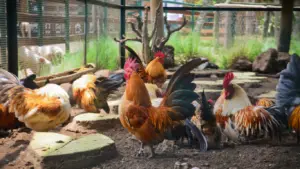
Chicken Coop Ventilation – How Much Do You Need?
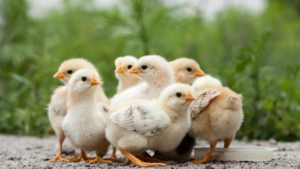
How to Build a Chicken Coop Door
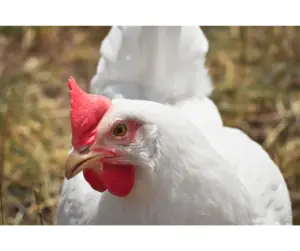
Green Diarrhea in Chickens: What It Means and How to Help
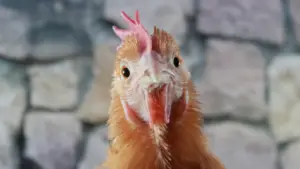
Understanding Diarrhea in Chickens: What You Need to Know
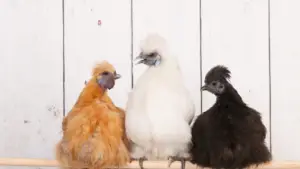
Does My Chicken Have Ascites or Egg Binding?
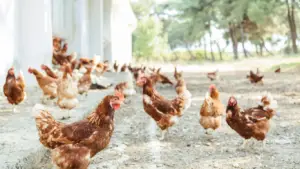
How to Build a Chicken Coop
Share via:
